International Day of the Girl
Posted in: Days of Observance
Every year, October 11 marks International Day of the Girl, a day to recognize and support the rights of girls around the world. This year’s theme is “My voice, our equal future.” One of the key points of this year’s theme is empowering girls to learn new skills towards the futures they choose.
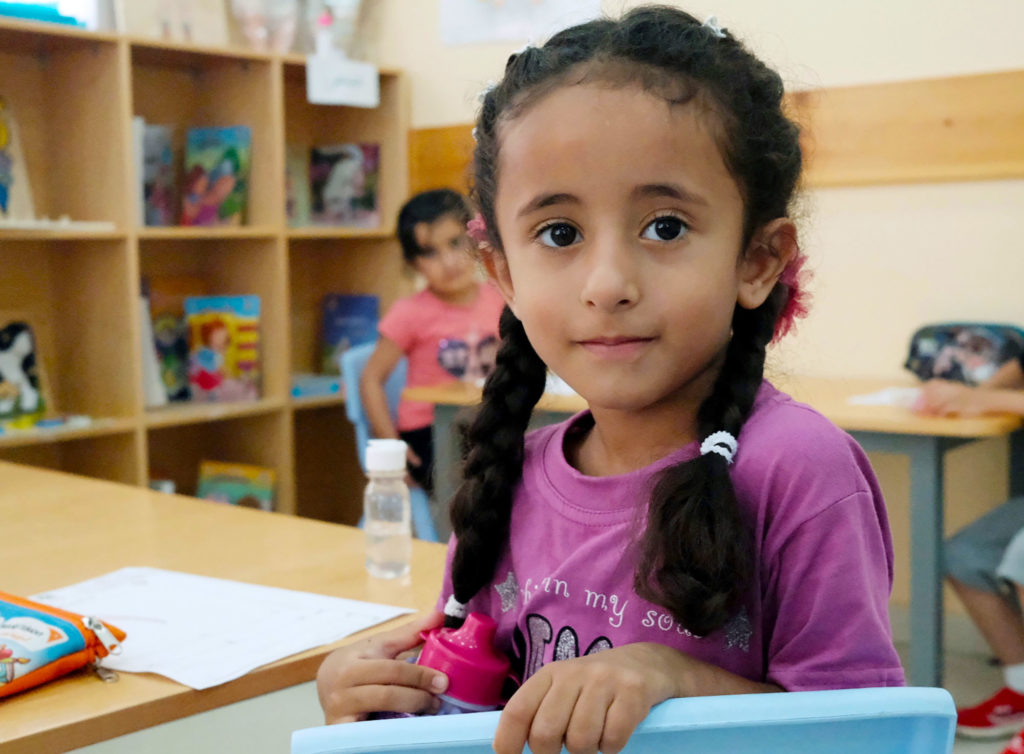

Anera recognizes that when girls have access to educational and economic opportunities, they engage with and eventually invest in their communities — improving the lives of everyone around them. Learn about some of the ways Anera’s programs in Palestine and Lebanon empower girls to build better futures for themselves and their communities.
2019
5 unstoppable girls of the Middle East
On the International Day of the Girl Child Anera honors some of the inspiring girls and young women we have met.
2018
Today, October 11, is the International Day Of The Girl as designated by the United Nations. Since 2012, the date has focused attention on the challenges and barriers confronting girls worldwide.
The 2018 theme, With Her: A Skilled GirlForce, highlights the critical importance of ensuring girls have access to the education, skills, and training that they need to succeed. Anera recognizes the importance of investing in girls. When girls have access to educational and economic opportunities, they will invest in their communities and improve the lives of everyone around them.
Girls and young women are increasingly in the majority when it comes to seeking higher education, though they often don’t share the same advantages as their male peers. Anera’s vocational training programs in Lebanon open opportunities by building marketable skills that provide a competitive edge. In Palestine, Anera is especially concerned with providing teachers the knowledge and skills they need to bring out the best from their students.
These are a few stories from Anera’s programs empowering girls by providing education and skills, as well as addressing gender-specific health needs:
Classes and Hygiene Kits Promote Sanitary Practices in Palestinian Refugee Camp in Lebanon
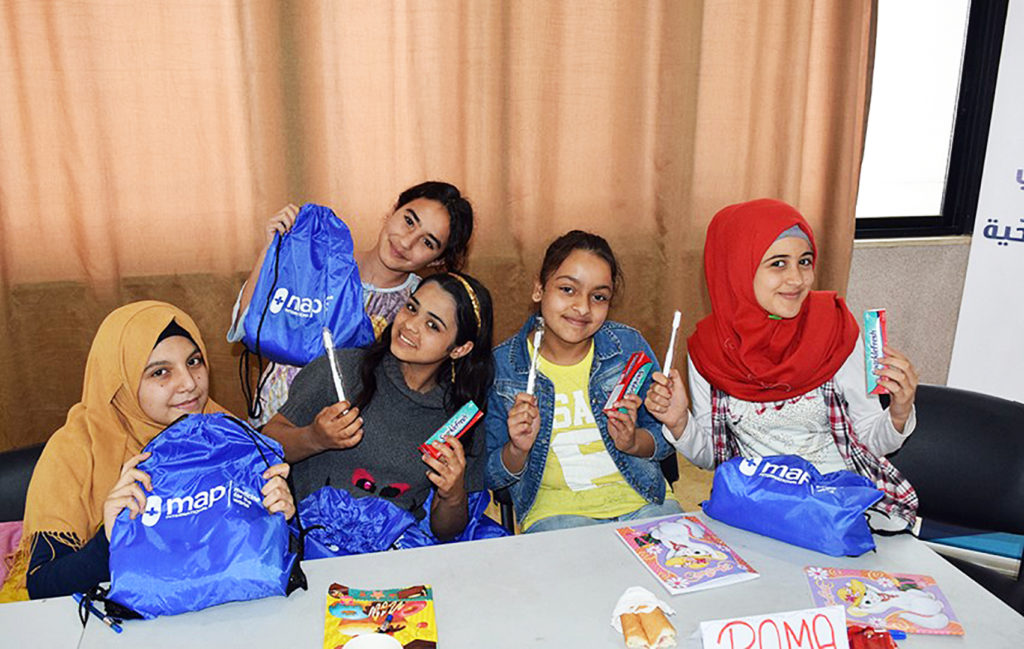

Families in Burj El Barajneh deal every day with terrible sanitation conditions that threaten their health. When family members get sick in the camp, girls and young women often have to drop everything and take care of them. It is easy to see the repercussions that this has on the well-being of the camp as a whole, and on girls in particular. Anera has partnered with UNICEF to equip these young women with the tools and information they need to become empowered agents of change. They become the key actors in improving health within the camp and, with these tools, they can serve their community through promoting hygienic living and good sanitation practices.
Rayan Wins Refugee Scholarship, Dreams Big
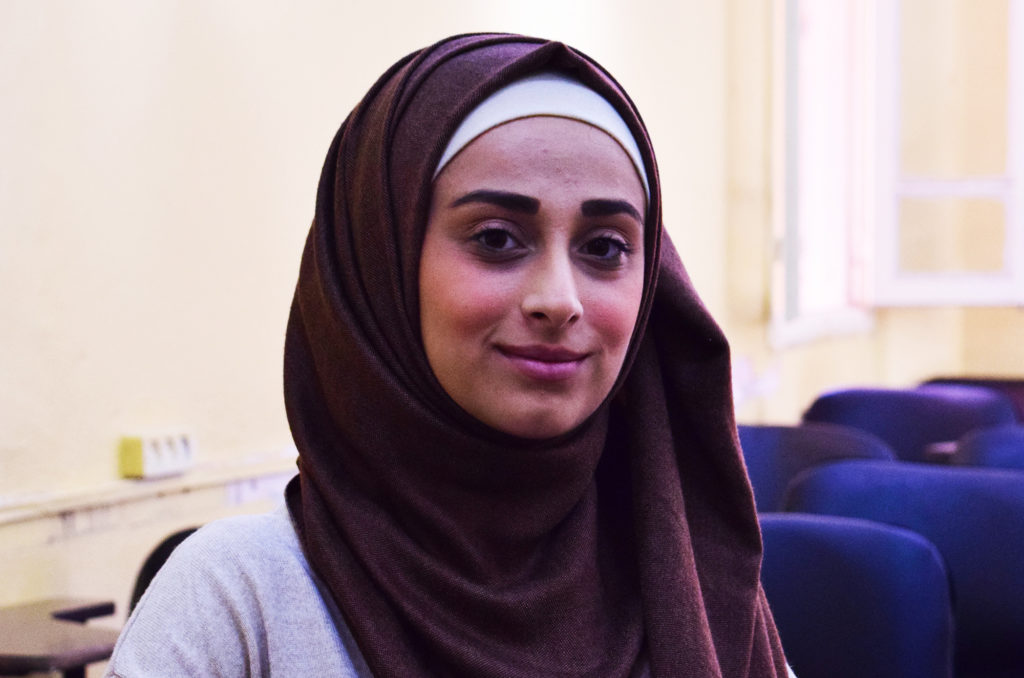

Rayan grew up in Jordan as one of the country’s two million Palestinian refugees. She and her mother later moved to Homs, Syria until the war came right into their home. Their next-door neighbor’s house was bombed and shells hit their own. “That’s when we decided to move to Lebanon,” says Rayan.
In Lebanon, she enrolled in a school that was free to Syrian refugees, but it didn’t provide students with any educational certification, so she dropped out and instead looked for a job. Soon she heard of a new nursing course for refugees like her, and she joined and ended up graduating at the top of her class at the Sidoon University College.
“When I got the scholarship from Anera, I felt like finally, I will do something, I will be able to live life on my own, to be independent,” she says. In Lebanon, nursing is one of the few professions in which Palestinians can legally work, which is why Rayan chose it. “It’s a humanitarian field,” she says. “And it’s good that I can help any sick person I see.”
Making Room for Girls in the Classroom: Fatima’s Story
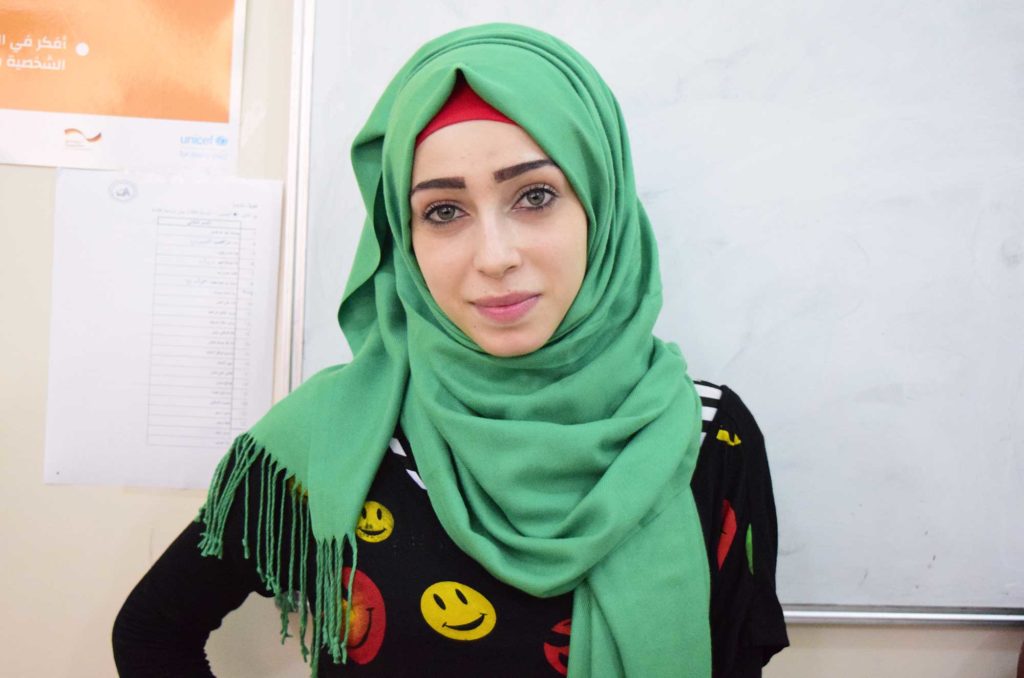

The Mohammadieh family fled Aleppo for Lebanon five years ago, when the Syrian war had just started to escalate. Cultural differences in Lebanon posed challenges, however. “Back in Syria, I went to an all-girls’ school,” explains Fatima, their eldest daughter. “My parents were not comfortable enrolling me in a co-ed school in Lebanon.”
To respond to the injustice of Fatima’s plight, Anera has organized culturally sensitive gender-segregated courses at a local center in Burj El Barajneh camp. Fatima’s course is part of Anera’s non-formal education and job skills program, which helps Syrian refugee youth get jobs in Lebanon. “Before joining this course, I couldn’t leave the house or to do any kind of activity. But now I go to classes and I’ve made new friends” says Fatima. Fatima is one of almost 1,500 girls enrolled in Anera’s job skills courses.
In “Football3” Program, Refugee Girls Assert Their Rights On and Off the Field
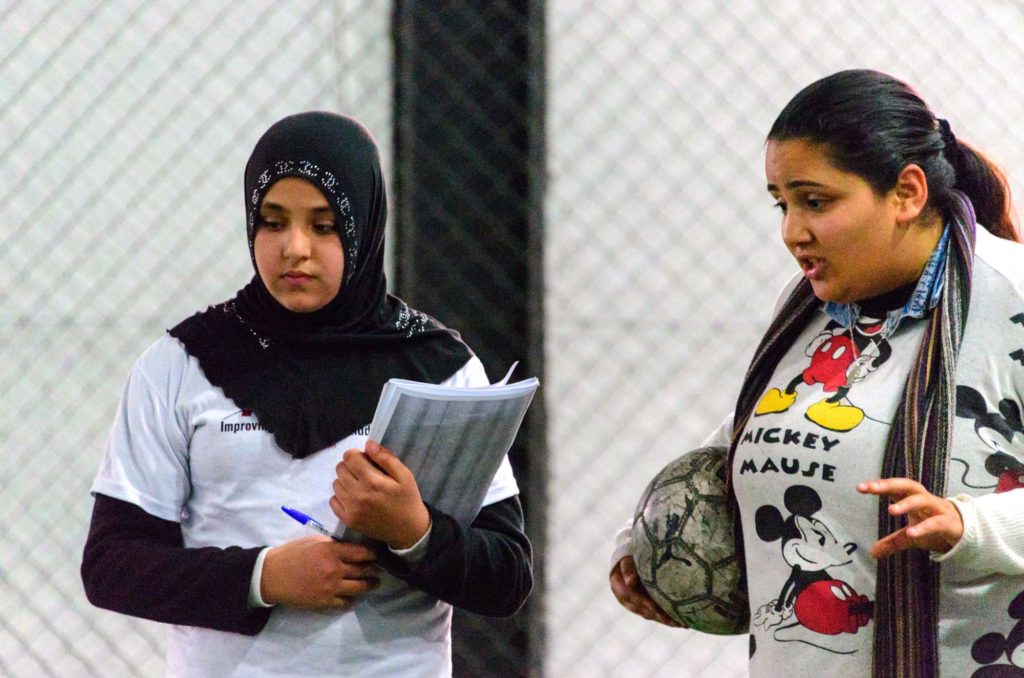

“This is the first time I feel that as a girl, my role as a decision-maker is respected, and I can freely express myself.” Sana Ghanem is a 12-year-old Palestinian refugee living in the Al Ma’ashouk gathering of Palestinian refugees in Tyre, South Lebanon.
In Lebanon, it remains difficult for girls to play sports and to access safe recreational spaces, especially in conservative communities. “I’ve always enjoyed football but the only place I could play was the balcony of our house, where I used to play with my brother,” said Sana.
Sana is one of 4,500 children around Lebanon learning conflict resolution, communication, and negotiation skills through sports activities. They learn these skills mainly through the football3 program created by Streetfootballworld, which uses the sport as a tool for positive social change. Gender equality is a basic value of football3, along with fair play, teamwork, respect, and athletic conditioning.
Nazha Al Robi, the mediator who oversaw Sana’s match, agrees that women in Lebanon face challenges as football fans and players. “It is not that acceptable for women and girls to play sports publicly here, and for many years I only played indoors or in private spaces,” she said.
OUR BLOG
Related
Joint Statement 200+ NGOs call for immediate action to end the deadly Israeli distribution scheme (including the so-called Gaza Humanitarian Foundation) in Gaza, revert to the existing UN-led coordination mechanisms, and lift the Israeli government’s blockade on aid and commercial…
